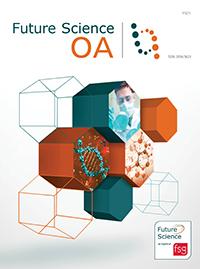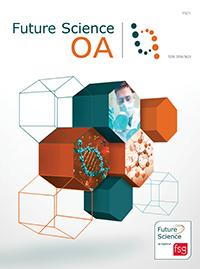
Credit: Future Science Group
While the Bemis-Murcko approach to scaffold analysis has remained the go-to definition for computational medicinal chemistry for the past few decades, it is not without its shortcomings.
New research published in Future Science OA from Jürgen Bajorath and colleagues at the University of Bonn (Germany) has presented a new scaffold definition, termed analog series-based scaffolds (ASB), and provides a free source of 12,294 scaffolds extracted from bioactive compounds.
"Revising the way molecular core structures (scaffolds) are defined for the systematic analysis of compound diversity and structure-activity relationships as well as for compound design has for [a] long [time] been on our agenda," noted Bajorath. "Medicinal chemistry will likely benefit from a computationally consistently applicable scaffold definition that is based on compound series and takes reaction criteria into account. To these ends, the ASB scaffold formalism was developed."
Describing the method, the authors explained: "From bioactive compounds, all analog series are isolated and for each series, 'structural key' compounds are identified. From each structural key compound, all matched molecular pair cores are derived. A core representing all analog relationships within a series principally qualifies as an ASB scaffold."
When comparing ASB versus Bemis-Murcko scaffolds, the researchers demonstrated that the analyzed compounds contained the same Bemis-Murcko scaffold, yet for each series with a different target, a different ASB scaffold was obtained. However, for series with a single target, five Bemis-Murcko scaffolds were obtained and only a single ASB scaffold.
In future, the group expects that further extensions of this approach could be considered, such as selection of multiple qualifying cores for a series, or the combination of structural information where no qualifying core is available.
###
The article is available free to read at: http://www.future-science.com/doi/full/10.4155/fsoa-2016-0058.
The scaffolds are available from: https://www.zenodo.org/record/155302#.WAdEN-grKjQ.
About Future Science OA
Launched in March 2015, Future Science OA is the inaugural gold open access journal from Future Science Group. It publishes articles covering research of application to human health, and utilizes a CC-BY license. Future Science OA embraces the importance of publishing all good-quality research with the potential to further the progress of medical science. Negative and early-phase research will be considered. The journal also features review articles, editorials and perspectives, providing readers with a leading source of commentary and analysis.
About Future Science Group
Founded in 2001, Future Science Group (FSG) is a progressive publisher focused on breakthrough medical, biotechnological, and scientific research. FSG's portfolio includes two imprints, Future Science and Future Medicine. In addition to this core publishing business, FSG develops specialist eCommunities. Key titles and sites include Bioanalysis Zone, Epigenomics, Nanomedicine and the award-winning Regenerative Medicine.
The aim of FSG is to service the advancement of clinical practice and drug research by enhancing the efficiency of communications among clinicians, researchers and decision-makers, and by providing innovative solutions to their information needs. This is achieved through a customer-centric approach, use of new technologies, products that deliver value-for-money and uncompromisingly high standards. http://www.futuresciencegroup.com
Media Contact
Leela Ripton
[email protected]
@futuresciencegp
Home | Future Science Group





